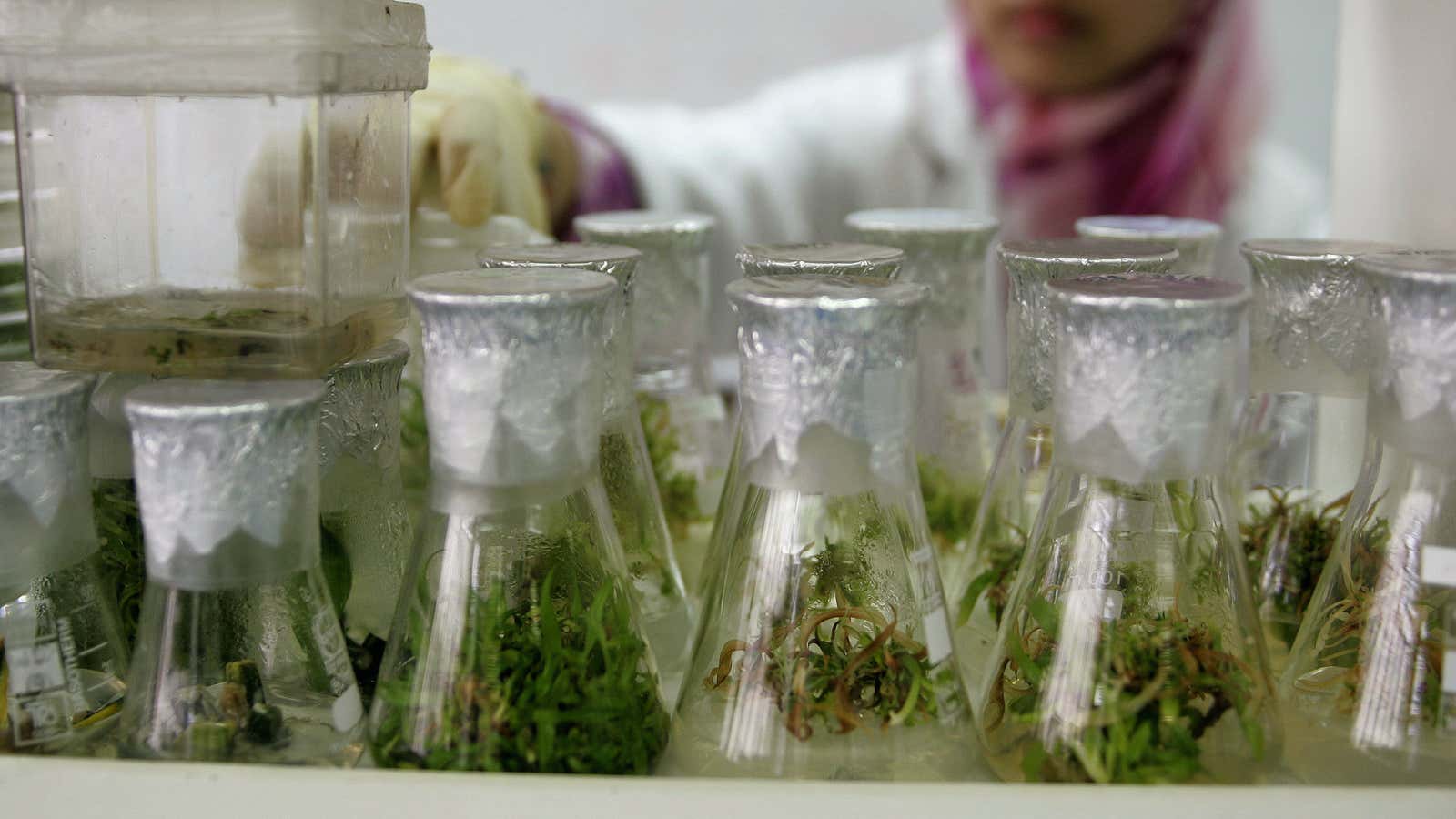Donald Trump’s health and science policy wasn’t particularly inspiring during his campaign. It’s vague, and tends to discount a lot of known scientific facts.
Scientists themselves are feeling uneasy about their ability to continue their work under the 45th president. “Given Trump’s blatant denial of science, we are all very concerned that science will be defunded,” says Sliman Bensmaia, a neuroscientist at the University of Chicago. “We anticipate that the world-class scientific culture that has been nurtured for decades in the US, arguably the most scientifically advanced country in the world, will wilt, at least to some degree.”
Most scientists at universities rely on grants from federal organizations, like the National Science Foundation, the National Oceanic and Atmospheric Administration, and the National Institutes of Health (NIH), in order to do their work. Trump is now responsible for finding leaders for these organizations. Although he has been tight-lipped about specific plans, he has called the NIH “terrible,” and has already appointed a well-known climate change denier to head up the US Environmental Protection Agency transition.
On the other hand, Trump has said he plans to invest in US infrastructure as part of his plan to make America great again. He’s already stated that he’d like to turn NASA from a “logistics agency for low earth orbit activity” into an organization focused on space exploration—which will undoubtedly need rockets.
Additionally, “health research is part of infrastructure,” says Martin Blaser, a microbiologist at the New York University School of Medicine. “Not only does it build health, but it builds jobs, technology, and exports for the US”—things like vaccines and medication.
And though climate science will probably suffer under Trump, he is very focused on energy policy—particularly, in reversing the course set by the Obama administration towards renewable energy by investing more into fossil fuels. William Menke, a seismologist at the Lamont Earth Observatory at Columbia University, thinks that as Trump invests more into fracking for natural gas, demand for research into safe ways to do it will rise. “The state governments have been pretty much at the forefront of the regulation of the technologies for oil extraction in areas where there have been induced earthquakes,” he says. Although there’s some basic science behind these regulations, he thinks they could be greatly improved.
Plus, Menke says, a huge part of physical infrastructure development is making sure it can withstand natural hazards, like hurricanes, tsunamis, and windstorms. If we want to build more, we’ll need to get better at predicting weather patterns and understanding how different materials can hold up to them. “[Trump] has, of course, built very many buildings in New York City and elsewhere, and by and large they’re well built,” Menke says, referring to the numerous buildings and properties which bear his name. (None of the Trump buildings have collapsed, although a worker was killed in 2008 when a wooden beam broke during the construction of one in SoHo, New York.) Theoretically, then, Trump could emphasize the importance of sound structural engineering, and will want to know how various materials and buildings designs will fare in all types of weather.
Of course, one glaring problem for research under Trump’s administration is his aversion to open immigration policies. “Part of research is personnel infrastructure,” Menke says. “Big Science in the US is very international.” If it becomes harder for researchers to visit or remain in the US, they’ll take their talent elsewhere. On the flip side, Menke says, this could also mean US scientists will be less likely to work abroad.
Trump hasn’t even been sworn into office yet—that won’t come until late January. It’s too soon to tell how his policies will impact science and health research just yet. “I hope we’re going to be able to accommodate the new reality,” Harold Varmus, the former director of the NIH, told STAT. “But someone needs to give the transition team a tutorial.
